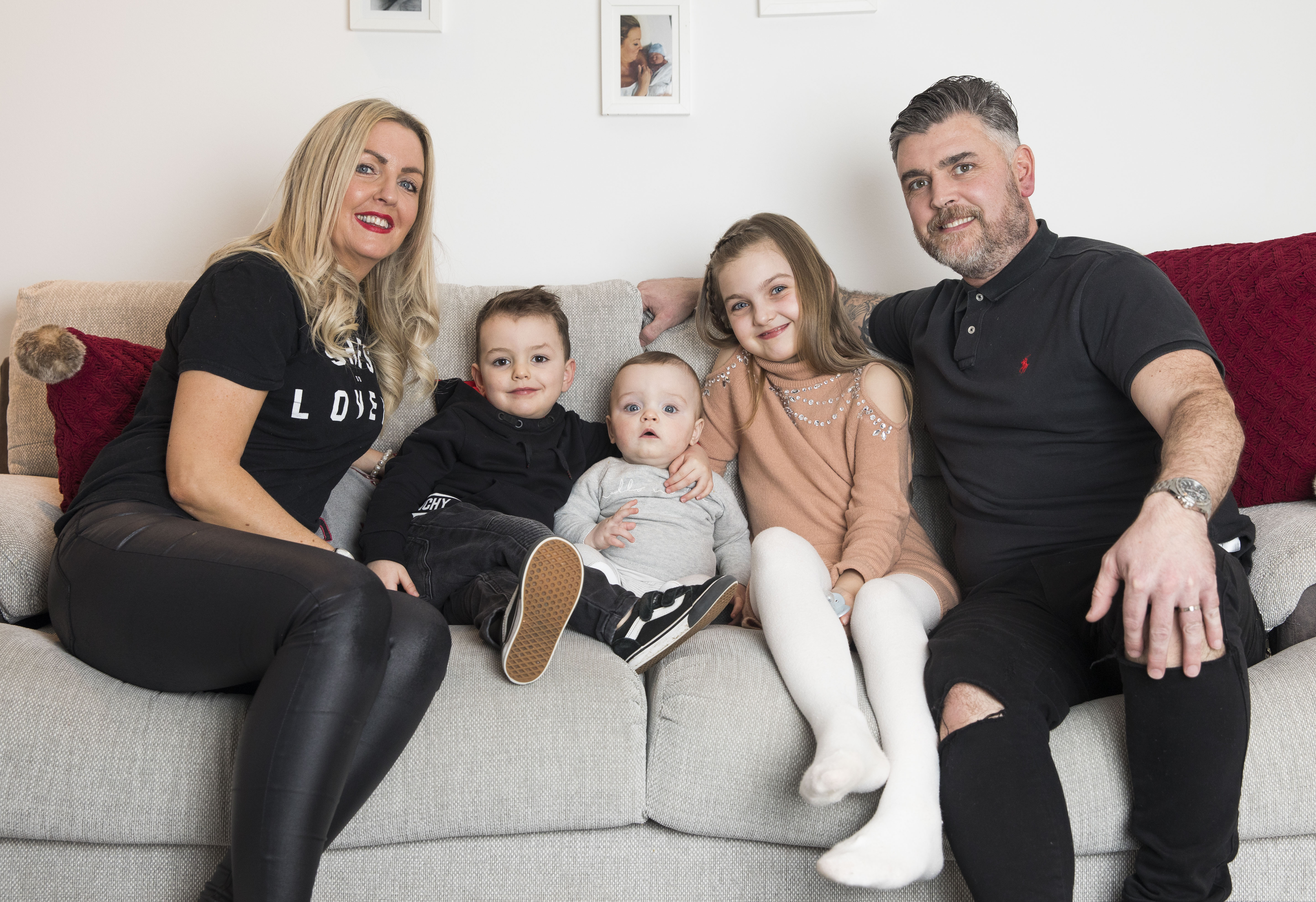
EXPECTANT mums spending weeks in hospital while enduring difficult pregnancies are able to take their older children with them at a flagship maternity hospital.
Family rooms are being opened at the Princess Royal Maternity Hospital in Glasgow so mums-to-be can keep their families with them if their pregnancy demands monitoring in hospital, often after an earlier Caesarean birth.
The new facilities have been welcomed by one young mum, Debbie Simpson, who became seriously ill when she was expecting her baby, Ashton.
“I had a condition that meant that Ashton and I were at serious risk if I went into labour out of the hospital,” said Debbie, 38, a medical rep from Uddingston, who has two other children, Lexie, nine, and Harrison, three. “I was terrified that I would die and leave my other children without a mum.
“My placenta had grown through the womb and was at risk of attaching itself to other organs.
“Going into labour naturally would mean haemorrhaging severely and I risked dying.
“I started to haemorrhage at 22 weeks into pregnancy and I was taken into hospital.
“It was stabilised and I was allowed home for spells only because I lived just 11 miles from hospital.
“Another mum who lived on a Scottish island was in for 10 weeks.
“I knew they preferred me to stay in as I could have haemorrhaged at any time.
“In last winter’s bad snow I was not allowed to leave the hospital in case I went into labour and couldn’t get back in time for an emergency Caesarean section or deal with a major bleed if it occurred.
“I missed my older children, Lexie and Harrison so much, it was awful. My husband Stephen used to bring them in to see me and I would shower them, put them in their pyjamas before they went home.
“I was reaching for some close quality time with my children –something most mums miss if they have to spend time away from them in hospital.
“Opening a family room will help other mums in this desperate situation.”
Baby Ashton was delivered at 34 weeks in a four-hour op.
A team of obstetricians, vascular surgeons and radiologists worked to deliver the baby safely and perform a hysterectomy to stop a massive bleed.
Debbie was anaesthetised throughout and spent three days recovering in a high dependency ward afterwards.
She was suffering from a dangerous pregnancy complication called placenta accreta.
The condition is linked to Caesarean births, older mums and pregnancies with assisted conception say the Royal College of Obstetricians and Gynaecologists.
Mothers and babies have a serious risk of dying in labour and childbirth.
Almost one in three Scottish babies are now delivered by Caesarean section.
Caesarean deliveries have increased with better scans picking up babies with problems needing emergency deliveries.
Half of Scottish babies born in 2017 were to women in their 30s or 40s. Births to women in their early 40s have climbed by two-thirds.
Additionally, babies born to women aged 45 or above jumped fivefold.
Dr Marcus McMillan, lead clinician for invasive placenta, at the Princess Royal, said: “We are a regional centre for this condition.
“We see up to 10 mums a year. What happens is the placenta sticks to the previous C section scar.
“The delivery is complex surgery and we have a dedicated team. It involves two hours of prep and then the delivery.
“Half will take up to three hours.
“Some mums are in for several weeks if they live a distance from the hospital.
“We have mums referred to us from west and central Scotland.
“They can feel isolated from families when they are already undergoing a stressful pregnancy.
“A family room makes for a happier more relaxed patient.
“We value the support of mums who have gone through this.”
“We just want to help other mums who have been through this too.”
The room is being partly funded through fundraising by mums who have suffered “dangerous” pregnancies – including Debbie.
Kate, from Kinloss, who almost died when her son Lucas was born, is president for the Hope for Accreta group of mums.
The mum of five said: “I was so ill after delivery I did not see Lucas for three days. We just want to help other mums who have been through this, too.”
The family rooms will have a sofa bed, TV and microwave.
Kate added: “At least one in 533 pregnancies ends up with some form of accreta. It’s shattering. We really want to raise awareness of the condition and support mums and their families.”
NHS Greater Glasgow and Clyde said: “We are extremely grateful to the mums who fundraised. Families who have experienced a difficult birth appreciate this family room and the time they have together in private.”

Enjoy the convenience of having The Sunday Post delivered as a digital ePaper straight to your smartphone, tablet or computer.
Subscribe for only £5.49 a month and enjoy all the benefits of the printed paper as a digital replica.
Subscribe